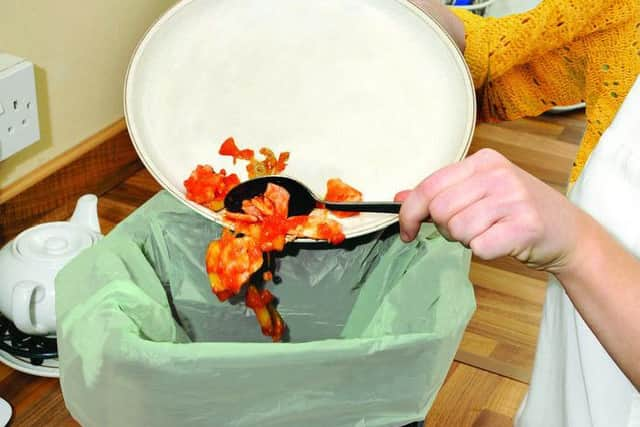Lynne Paterson: Throwing away so much food means the poorest around the world are going hungry


According to a recent UN report, 815 million people are now facing hunger, which is an increase of 38 million people from the previous year.
These figures are staggering – especially when we are living in a world that is producing more food than ever before. Worse still, a third of it is wasted. Here in Scotland, we throw out enough food from our homes each year to make 800 million meals.
Advertisement
Hide AdAdvertisement
Hide AdIn our work at Tearfund, we meet people in the poorest corners of the world who are literally crying out every day for their daily bread. And yet here in Scotland, we discard 2.1 million slices of it every single day. That’s enough to fill the rugby pitch at Murrayfield Stadium two and a half times over.


Rather ironically, this food waste is also contributing to one of the main causes of the growth in world hunger, climate change. People are being pushed further into poverty around the world because the climate is changing fast. There are more droughts, more floods, and less reliable rain – which makes it much harder for people in poverty to feed themselves.
We recently met a family in central Malawi who told us they have relied on agriculture to sustain themselves for decades, but their crops are now failing and they are forced to feed their children food they would normally toss to the pigs.
We believe it is a huge injustice that the poorest communities in the world suffer the most from climate change, when they are the ones who have contributed least to the problem.
Tearfund Scotland recently launched Renew our Food, a campaign which highlights the link between food waste and our carbon footprint. We look at the environmental impact of producing far more food than we consume, and how this affects poor communities around the globe.


Our campaign is about encouraging everyone to take steps to cut down on the amount of food we throw away and to realise the significant impact this could have. If everyone in Scotland stopped throwing away food, the reduction on emissions would be the equivalent of taking one in four cars off the roads. We are also calling on Scottish supermarkets to protect the world’s poorest people by making a commitment to halve food waste and produce a plan of action to show how this will be achieved. This call to action is in line with the UN Sustainable Development Goal of halving food waste by 2030.
At the centre of our food supply chains, supermarkets have a unique and powerful role to play in reducing food waste.
For instance, they can relax strict cosmetic standards that lead to wasted crops. In the UK, as much as 30 per cent of vegetable crops are not harvested due to their failure to meet retailers’ exacting cosmetic standards. This means that their taste and nutritional value are fine; they just might be blemished or misshapen.
Advertisement
Hide AdAdvertisement
Hide AdSupermarkets also have a role to play in no longer encouraging customers to buy more food than they need, as well as working with suppliers to make sure food production does not exceed demand.
Whilst it’s important to stop food from going to landfill, the biggest environmental benefit – and therefore benefit to people in poverty – is from preventing the excess food from being produced in the first place. This would reduce the energy, water and other resources used to grow, harvest, transport, process, sell, store and cook the food.
As we approach World Food Day this coming Monday, 16 October, Tearfund is encouraging Scots to carefully consider the food that we waste and the impact that this has on the world’s poorest people.We are asking consumers to use their power to urge supermarkets to take decisive action for the sake of those who are in greatest need.
You can make your voice heard at www.tearfund.org/foodwaste
Lynne Paterson, director of Tearfund Scotland.